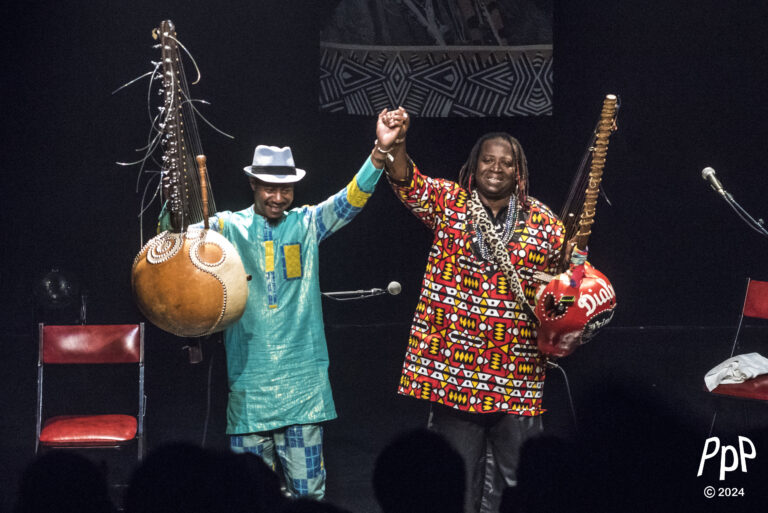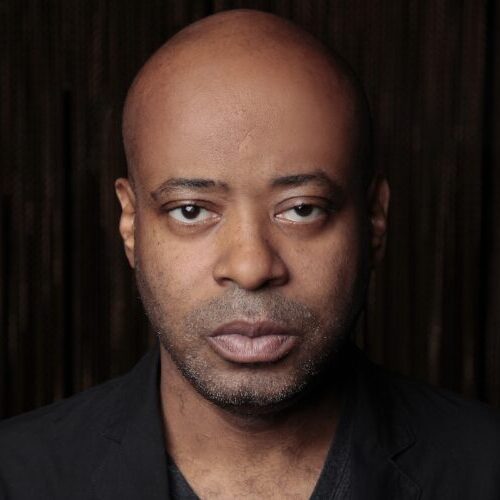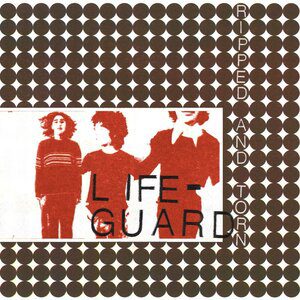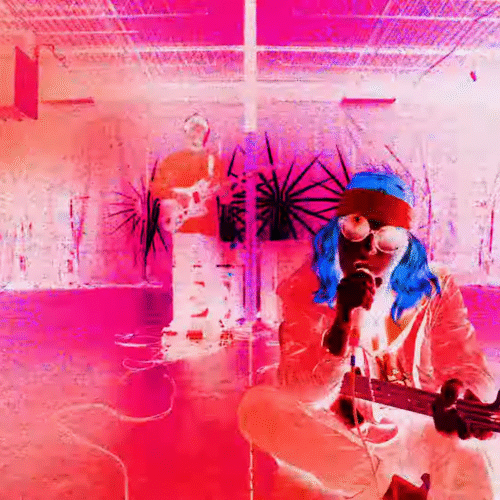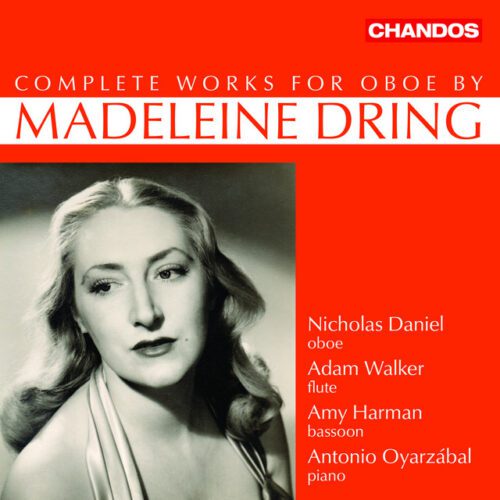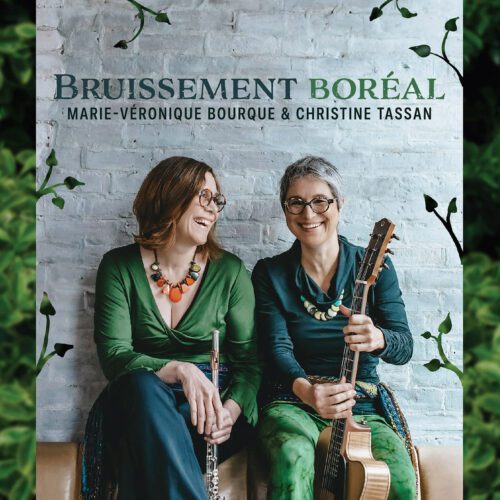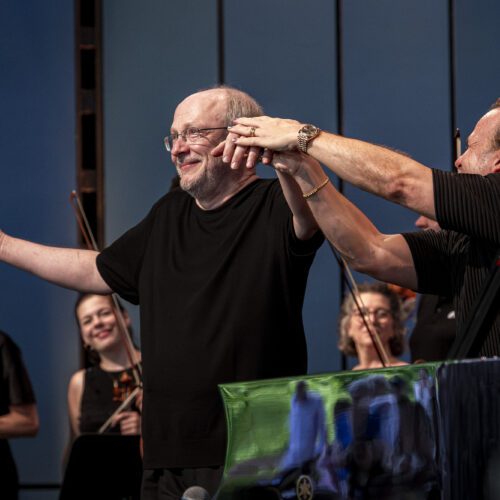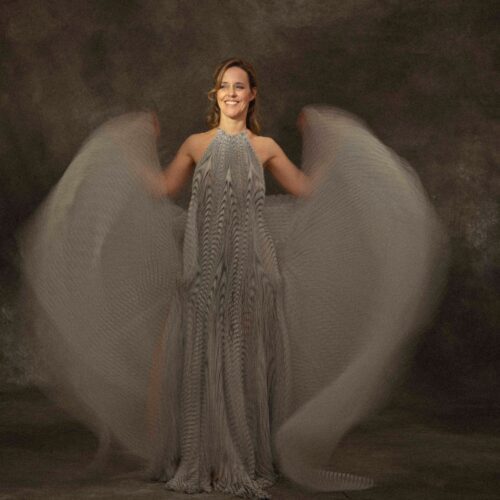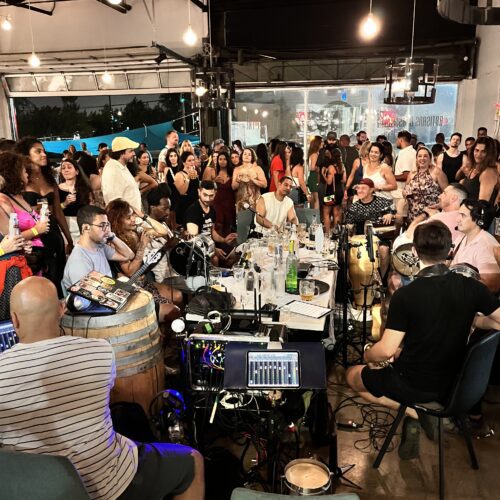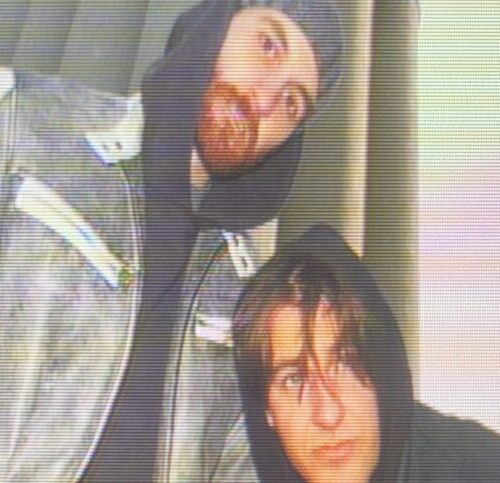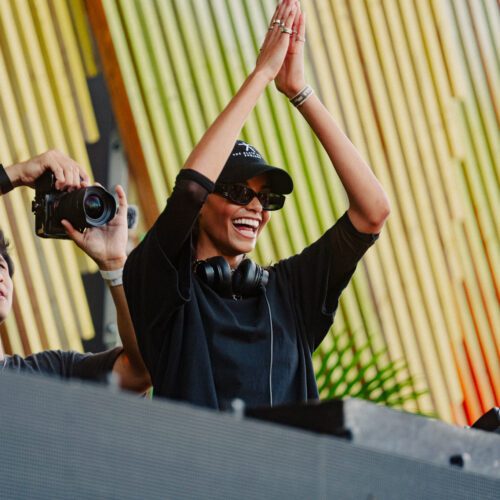The kora is one of the most fantastic African inventions. This 21-string harp, made of calabash (a large, very hard squash) and cowhide, invented at the end of the 17th century, allowed West African griots to create complex music with very rich harmonic possibilities.
My first auditory contact with this instrument occurred in the summer of 1979 (that doesn’t make me any younger…) in a post-hippie bar in Olympia, in the United States, during a community radio meeting. The Mandingo Griot Society record was playing and everyone at our table stopped talking; some started dancing. “What is this instrument, it’s so beautiful,” someone cried. We had to do our research later. There was no internet or cell phones.
From the mid-1980s, the African wave swept across the West, bringing us multiple koras in its wake.
The Night of the Kora has become a staple of the Nuits d’Afrique festival. To embody it in 2024, who better than Prince Diabaté, nicknamed the “Jimi Hendrix of the kora”. Originally from Guinea Conakry, from a lineage of griots, these traditional Mandingo singing journalists, Prince Diabaté is an innovator of the kora, having sometimes merged with modernity, the WahWah pedal, rap and symphonic music. The prince of alternative Kara.
However, at Gésu, this July 14, Prince Diabaté presented himself in a more intimate format, solo, with his all-red kora, with his name engraved on it. Is it for lack of resources or for concern for authenticity? Regardless, the result delighted the rather large audience.
Prince Diabaté completely merges with his instrument. He manages to extract unknown, unpublished notes, sometimes in cascades, sometimes gently. He also sings in a pleasant voice, or declaims words of traditional songs or compositions. He also sometimes hits the body of his instrument with force, to create rhythmic surprises.
For me, there is something strangely timeless about this performance. I can not explain it. This sound, based on centuries-old traditions, is surprisingly current.
Opening act, Malian-turned-Montrealer Diely Mori Tounkara. “We’re going to have fun tonight,” he said from the outset. Diely is less flamboyant than Prince Diabaté, but his more meditative playing, using a lot of reverb, is not without interest, quite the contrary. This distinguished artist of Montreal diversity gave us an excellent time. To cap off the evening, the two musicians played together, alternating improvising one after the other.
The audience, predominantly white but with a significant African component, was won over. There were no more races, languages, differences. Everyone was united by the kora.
Photo Credit: Peter Graham
